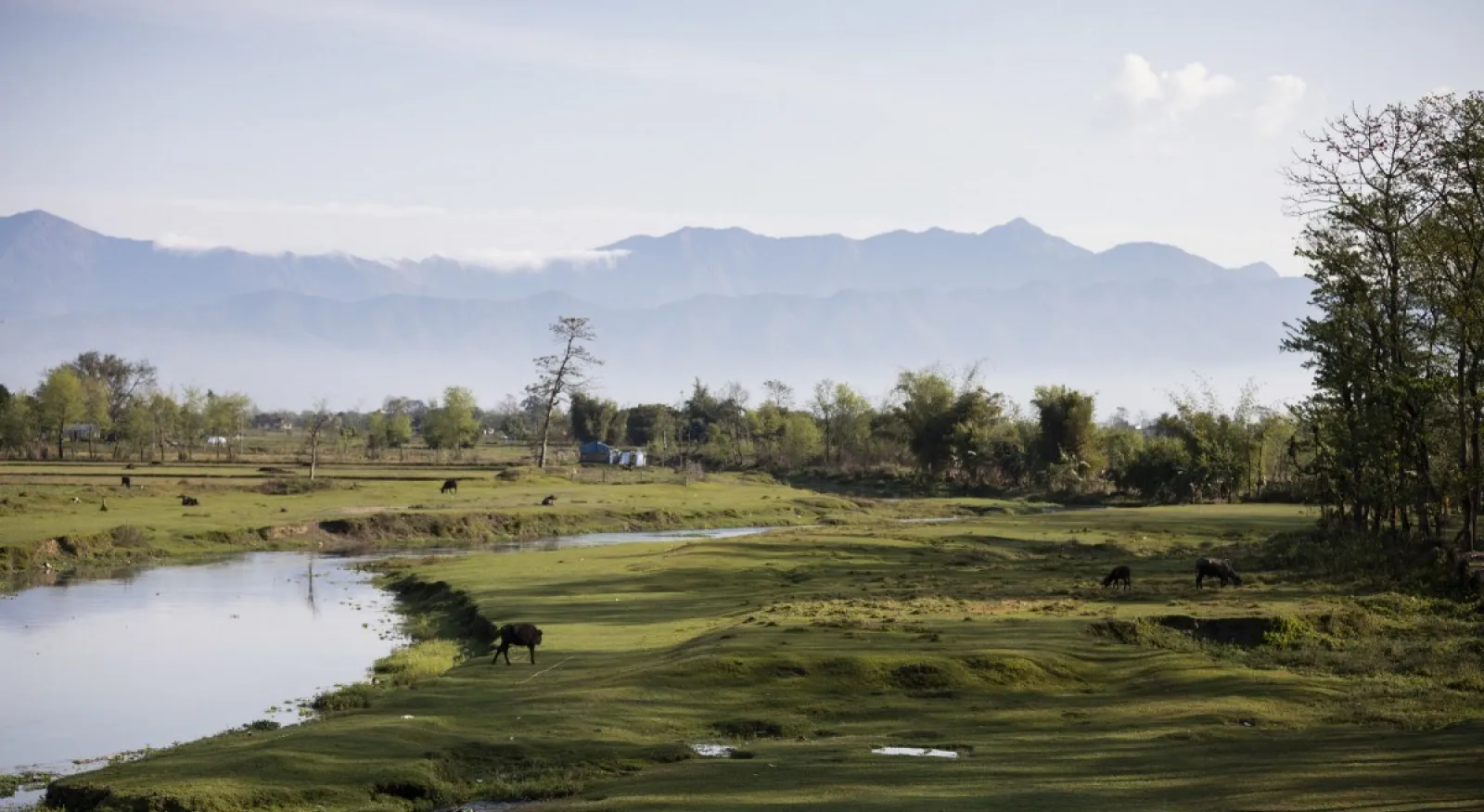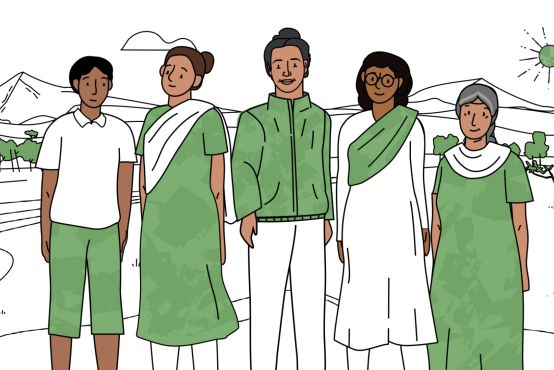Empowering communities to combat climate change
How indigenous women and young people in Nepal are working with nature-based solutions to tackle the impacts of climate change.

Nepal is one of the world’s most vulnerable countries to the effects of climate change. With around 80%* of the country's population living in rural areas, and more than 70% dependent on agriculture for their livelihoods, improving the resilience of rural communities against climate change is critical.
According to The International Union for Conservation of Nature (IUCN), the impact of climate change in Nepal is expected to increase over the coming years, and the communities who rely on natural resources are the most vulnerable. IUCN recognises that many Nepalese communities would benefit from building on existing knowledge and capacity to cope with climate-related disasters.
IUCN works globally to provide nature-based solutions to address major climate change challenges. Nepalese indigenous women and young people are well versed in traditional knowledge and practices, however many lack skills and resources in relation to nature-based solutions.
With support from the Australian Volunteers Program and program partner the Nepal Ministry of Forests and Environment (MoFE), IUCN Nepal is delivering a project to strengthen the capacity of indigenous women and young people to establish nature-based solutions within their communities.
An Impact Fund grant from the Australian Volunteers Program is supporting this vital development work. The project has also been supported by Australian remote volunteer Ashley Crowther. As Program and Communications Support Officer with the Ministry of Forests and Environment of the Government of Nepal, Ashley contributed to the development of sustainability policies, guidelines and training manuals.
'Nepal's water system: particularly impacted by climate change'
Anu Adhikari is a climate change specialist at IUCN Nepal and is leading the project. She has several years’ experience working in climate change adaptation and biodiversity conservation.
‘The main challenges facing us in Nepal in terms of climate change are rising temperatures, changes in rainfall patterns and longer drought periods, all of which are linked to climate-related disasters such as floods, landslides, droughts, soil erosion, and wildfires,’ says Anu.
‘Nepal’s water system is particularly impacted, which poses a risk to the country’s agriculture ecosystems, human health, and people’s livelihoods.'
'The involvement of indigenous women is vital'
Anu says in Nepal, disadvantaged and minority groups including women, children, indigenous and elderly people, and those living with disability, are especially impacted by climate change.
‘Our project, which has been designed in collaboration with organisations that represent indigenous women and young people, supports indigenous women and young people in particular,’ she says.
‘The involvement of indigenous women is vital as they are resource custodians and it’s their livelihoods that mainly depend on natural resources.
Find out more in our short animation, narrated by Anu.

‘Many Nepalese men have migrated to foreign countries for better employment opportunities, so indigenous women and young people a key role in natural resource management and fostering, sharing and developing their traditional nature-related knowledge and skills.’
‘As well as expanding on their existing knowledge and skills and learning about nature-based solutions to help combat climate change impacts, those involved with the project will learn about ecosystem-based adaptation and ecosystem-based disaster risk reduction,’ says Anu.
‘This includes the establishment of conservation plots, the promotion of organic farming and agro-forestry, efficient water use technology (including kitchen waste management and community tap water management), and planting broom grass or bamboo alongside roads built on mountainous slopes to help stabilise them and reduce the risk of landslides.’
'Proud to be part of such an important project'
‘I think the project has helped open the participants’ eyes to see things through a climate change lens,' says Anu.
'It’s also recognised indigenous women as resource custodians and highlighted how important a role they play in protecting their communities.
‘I feel so proud to be part of such an important project and happy that by sharing my knowledge and experience, I’ve helped enhance the resilience of indigenous communities, especially women and young people.’
IUCN Nepal is providing technical support to the Ministry of Forests and Environment of the Government of Nepal for the implementation of its projects. The Ministry is one of a number of organisations to receive an Impact Fund Grant from the Australian Volunteers Program to support vital development work.
*According to the United Nations Development Program (UNDP) Nepal.